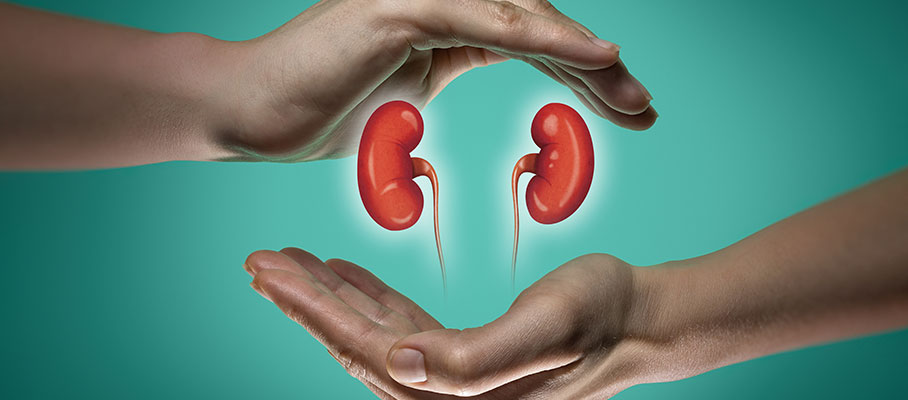1b) Faculty disclosures are listed at https://t.co/PHlIppl6Yw. Please also check out, for more 🆓credit, the #blogposts edited by @sophia_kidney at https://t.co/Zap2Al75YO. FOLLOW US at @ckd_ce & at @KIReports for more expert #MedEd in #kidneydisease. #FOAMed @MedTweetorials
— @CKD_ce (@ckd_ce) December 13, 2023
2) Chronic kidney disease (#CKD) is common & may be asymptomatic at diagnosis.
— @CKD_ce (@ckd_ce) December 13, 2023
Predicting which patients will have progressive disease can be challenging.
The #KFRE (kidney failure risk equation) is one tool that may help physicians & patients plan for the future 🔮🫘🔮 pic.twitter.com/9NJDOT8AER
4) Do you currently use the #KFRE in clinical practice?
— @CKD_ce (@ckd_ce) December 13, 2023
6) Prognostication can be refined by incorporating additional data (serum Phos, albumin, HCO3, & Ca) into the 8-variable #KFRE.
— @CKD_ce (@ckd_ce) December 13, 2023
KFRE scores have been proposed as a method to institute risk-based thresholds for referrals to nephrology care or multidisciplinary nephrology clinics. pic.twitter.com/y9G5DaGtSI
8) In 🔓 https://t.co/kWcGNU0lhP, the authors quantified #KFRE score documentation in an outpatient #nephrology clinic, surveyed nephrology providers to assess use & conducted focus groups to identify common themes influencing perspectives on the KFRE.
— @CKD_ce (@ckd_ce) December 13, 2023
10) #KFRE scores were EMR integrated in multiple ways including:
— @CKD_ce (@ckd_ce) December 13, 2023
👉 Display upon chart opening
👉 Pulled into patient notes
👉 A “Patient Insight” screen that included trends of eGFR/albuminuria
However, unless entered into clinic notes, KFRE scores were not shown to patients. pic.twitter.com/LbGvBUmfyG
12a) 🚨 Results
— @CKD_ce (@ckd_ce) December 13, 2023
Documentation of #KFRE scores ⬆️over time.
In total, KFRE scores were documented in 18% of outpatient #nephrology clinic notes-
CKD G3a: 14%; CKD G3b: 19%; CKD G4: 20%; and CKD G5: 17%. pic.twitter.com/4aElsF6ezk
12c) Provider Surveys:
— @CKD_ce (@ckd_ce) December 13, 2023
31% of faculty & 33% of fellows reported use of the #KFRE for patient notes in 70% to 100% of clinic visits.
In addition, 15% of faculty & 42% of fellows reported at least viewing the scores. Fellows reported higher awareness of KFRE score reporting tools. pic.twitter.com/xjZOKMb2gR
13) “Patient Insight” provided a quick review of #eGFR/#albuminuria trends over time.
— @CKD_ce (@ckd_ce) December 13, 2023
👉 Most useful in reassuring older pts with a ⬇️ risk of progression.
👉 The utility of 5y #KFRE scores in younger CKD pts was less certain given the inability to predict unexpected life events.
15) Participants noted the benefits of using #KFRE to provide a risk estimate directly to pts or other non-nephrology providers.
— @CKD_ce (@ckd_ce) December 13, 2023
There were concerns about providing data without appropriate discussions of the inability of KFRE scores to account for future events impacting #CKD. pic.twitter.com/O77Z9cR3de
17) After reviewing this article, do you think that you will use the KFRE in clinical practice?
— @CKD_ce (@ckd_ce) December 13, 2023
18b) The correct answer is c; all other options are 👍uses. But the #KFRE was felt to be less reliable in young pts because:
— @CKD_ce (@ckd_ce) December 13, 2023
a. The unpredictability of future life events
b. They are non-compliant with f/u
c. They often cannot afford meds
d. They don't take bad news well
19a) So, this has been @brian_rifkin for @KIReports & @ckd_ce.
— @CKD_ce (@ckd_ce) December 13, 2023
Thanks to authors Dipal Patel, @BryceChurilla, Heather Thiessen-Philbrook, Yingying Sang, @meg21212 , @KidneydrChirag and @DrDeidraCrews.
Happy Holidays!
19b) In my stocking: broad use of #KFRE–as ubiquitous as #eGFR reporting!!
— @CKD_ce (@ckd_ce) December 13, 2023
Wish with me, and go grab your 🆓#MedEd 0.5 hr credit now at https://t.co/2tavzWFXxX
